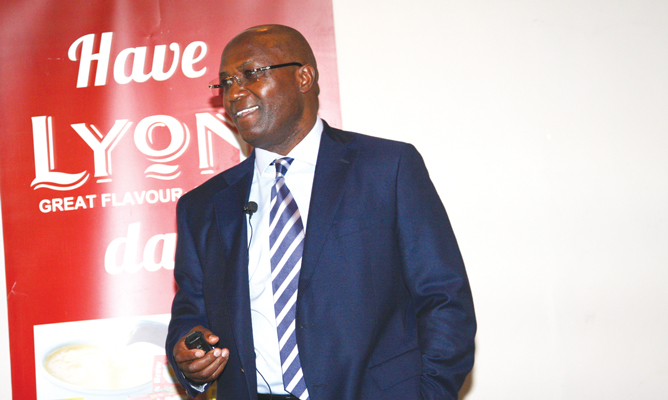
INDUSTRY 15 pinning hopes of a fruitful 2016 on the success of government’s $1,8 billion arrears clearance strategy that is being spearheaded by Finance minister Patrick Chinamasa.
BY VICTORIA MTOMBA
Zimbabwe has announced plans to pay its arrears to the three preferred creditors this year in a move expected to unlock foreign funding into the country after a long dry spell.

Leading industrialist Anthony Mandiwanza said the drought situation and tumbling commodity prices painted a gloomy picture on prospects of internally driven growth.
“Despite the drought, we are still expecting the arrears clearance resolution as agreed will come to fruition and we look forward to the meeting with the Paris Club in March 2016 because that’s when business will be clearer,” he said.
He said the projects in energy and infrastructure that were underway had a long gestation period and, therefore, required a lot of time. “I am less optimistic than I was last year,” he said.
CZI president, Busisa Moyo said the completion of arrears clearance plan endorsed in October 2015 at the IMF summer meetings in Lima was critical to Zimbabwe’s economic future.
- Chamisa under fire over US$120K donation
- Mavhunga puts DeMbare into Chibuku quarterfinals
- Pension funds bet on Cabora Bassa oilfields
- Councils defy govt fire tender directive
Keep Reading
Moyo projected foreign direct investment could reach $1 billion in 2016 provided there was collective effort to attract capital.
The CZI president said formal employment could be increased through sustainable companies operating at higher capacities, reduction of the import bill and moves towards current account surplus. Complimentary increases in the services sector would also create further multiplier increases in employment.
“Failure to do the above will see further loss of employment, company closures decimating the remaining 15% of industries that were operating 20 years ago and a dearth in FDI to below $100m as we experienced in hyperinflationary days. Zimbabwe would become a colossal supermarket for foreign goods,” Moyo said.
Lynton Edwards, a stock broking firm, said in the outlook the stock market was due for recovery after two years of bearish activity. However, the outlook hinged largely on an anticipated gradual increase in liquidity on the back of plans to clear $1,8 billion to the three preferred creditors.
“We also believe reforms implemented in the financial sector will begin to yield fruit in terms of improved confidence and low risk profile. We note that risks to our outlook includes a poor agricultural season, issues to do with indigenisation, falling commodity prices and further strengthening of the US$.”
In October 2015, Zimbabwe’s plan to clear its $1,8 billion arrears to the International Monetary Fund (IMF), the World Bank and African Development Bank was approved by the three creditors. The government is expected to receive close to $500 million as balance of payment.
The country will pay the African Development Bank and the International Development Association through bridging finance and the balance would be paid through African Bilateral countries that will pay $891 million while the bridging finance will take care of the $1 billion.
Zimbabwe’s domestic and foreign debt stands at $8,3 billion and includes debts from the Paris Club, international financial institutions and other creditors.
The National Vendors’ Union chairperson Sten Zvorwadza said 2016 would be a tough year for vendors because the country was struggling economically and the situation had been worsened by the prevailing drought conditions.
“Most of the goods that we sell are agro-based, so the drought means we will struggle to secure some of these goods. We are facing challenges from local authorities who have failed to appreciate that the economy is now dependent on the informal sector and, therefore, should come up with laws that are friendly to the informal economy. This year the authorities should desist from confiscating our goods,” Zvorwadza said.
He bemoaned the attitude of leaders who he said were not being accountable to the citizens of this country.
Commercial Farmers’ Union of Zimbabwe spokesperson Olivier Hendrik said in 2016 the farmers were looking forward to good economic and agricultural policies to develop the country.
“I don’t think the agricultural sector will fare very well this season because of the dry spell and it seems it will continue, so definitely irrigation is the way to go. Every single person who can farm should have access to land so that we develop our economy,” he said.











